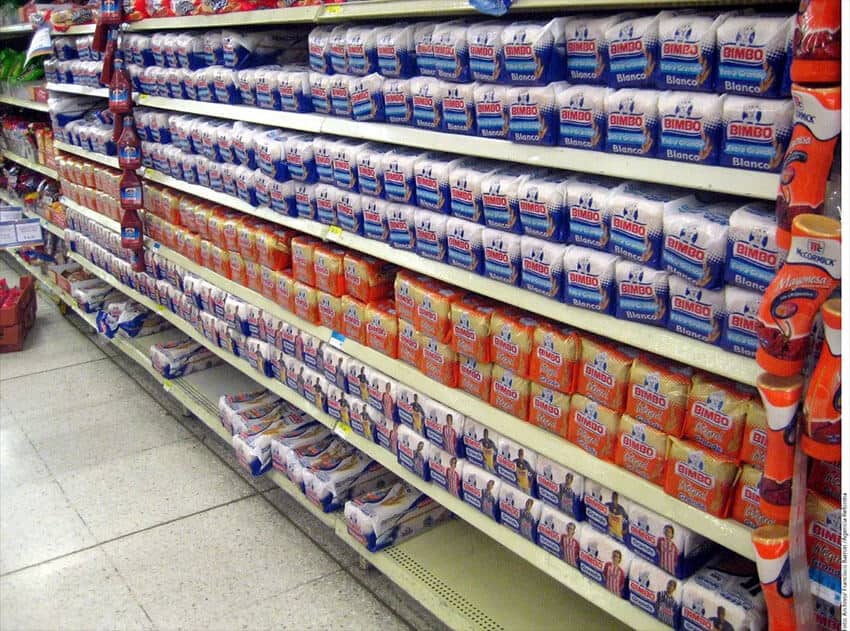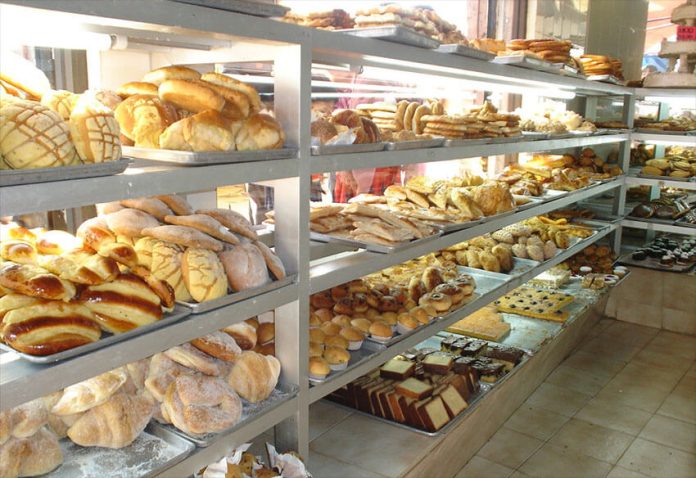The announcement earlier this week that inflation in Mexico has reached its highest rate in 22 years included some follow-up reporting that it’s costing people more money to buy bolillos, doughnuts and loaves of Bimbo bread.
“First the tacos and now the tortas,” screamed a headline in the newspaper El Heraldo — alluding to a report last week predicting that a kilo of tortillas will cost 30 pesos by the end of the year.
Now comes word from Anpropan, Mexico’s national association of bread suppliers, that prices at panaderías and in the bread aisle at supermarkets will increase 8% over the second half of 2022.
This is due to a sustained rise in the cost of raw materials needed for the production of bread, namely flour, eggs, and gas or electricity to run the oven.
One factor is that international wheat prices have risen due to the war between Russia and Ukraine, since they are two of the world’s largest producers, noted Iñaki Apaolaza, a member of the Anpropan board. Another factor is that Mexico’s bakery industry gets 70% of the wheat it uses from the United States, El Heraldo reported.
Last month, Grupo Bimbo announced it would raise the prices of its products — including Tía Rosa, Milpa Real, Saníssimo and Mexican-produced Wonder bread — starting on July 18. And that was on top of roughly 10-peso increases that already occurred in 2021, as reported in the newspaper El Financiero.
An informal Mexico News Daily survey of prices on Thursday at Walmart Express, Soriana and Chedraui showed regular-sized Bimbo loaves (610-680 grams) at 42 to 43.60 pesos for pan blanco, 48.50 to 56 pesos for pan integral and 52 to 61 pesos for Cero Cero (zero added fat and sugar). These prices were found online and might include built-in delivery costs.
A survey by El Heraldo that included a regular panadería and a Walmart panadería showed prices, on average, of 2 pesos for a bolillo, 9.5 pesos for a croissant, 10 pesos for a biscuit and 14.50 pesos for a chocolate doughnut, but did note that a chocolate doughnut can reach as much as 20 pesos.

According to Anpropan, Mexicans annually consume 36 kilos (79 lbs.) of bread per capita, which is nearly three times the Canadian average of 29.8 lbs. per year and more than twice the U.S. average of 37.4 lbs. per year, based on data from 2016 and 2017, respectively.
Mexican bread baker Ana Laura told El Heraldo that she has been forced to raise the prices on her small products by one or two pesos each, especially on items that require sugar.
“Sugar, eggs and milk, the basics for making biscuits, have risen in price,” she said. “We would like to avoid raising the prices, but we would lose profits. We have discussed the increases with customers, telling them it’s because we do not want to lower quality.”
Earlier this week, it was announced that general inflation in Mexico was at 8.15% in July, its highest since the 9.12% rate in July 2000. Last year’s annual rate was 5.81%, according to the National Consumer Price Index, and this year’s annual rate by year’s end “could reach 8.7%,” according to Gabriela Siller, director of economic analysis at Banco Base.
While the administration of President López Obrador has announced measures to control inflation and hold down food prices, the rising costs of basic grocery items are putting a pinch on many. The newspaper El País reported the following price increases from June to July: the cost of eggs went up 8.3%, oranges 15.5%, potatoes 12% and green tomatoes 20.4%.
In addition, El Heraldo reported finding tortillas for 27 pesos per kilo in Sonora. Before the pandemic hit in 2020, the average cost nationwide was about 13 to 14 pesos per kilo, and at this time last year, it was just starting to climb over 20 pesos. “Inflation has hit the Mexican economy hard and experts point out that the worst will come at the end of August and the entire month of September,” the newspaper wrote.
With reports from El País and El Heraldo
